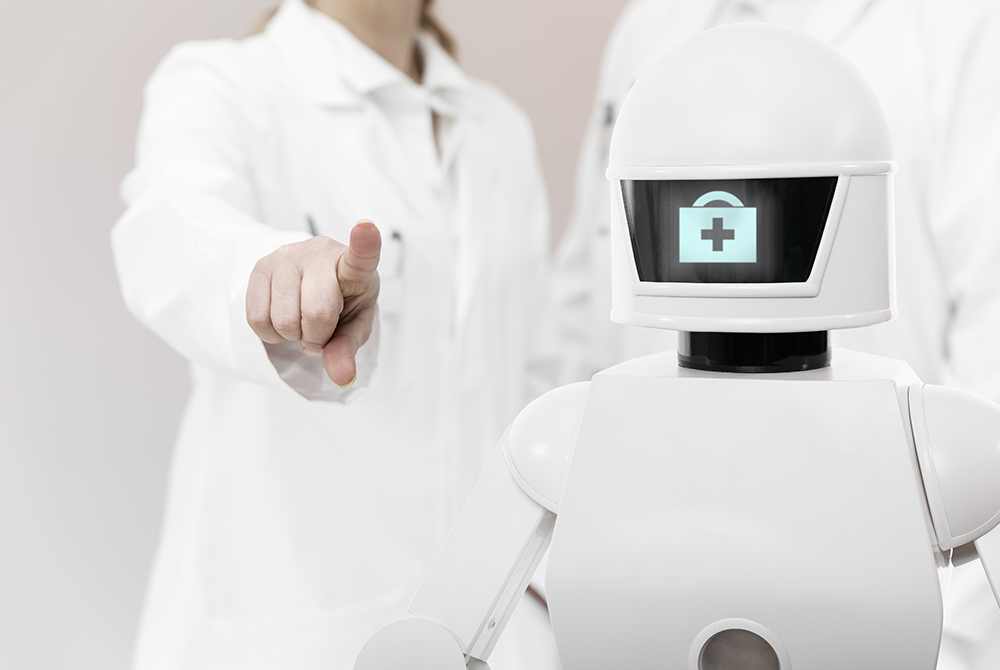The novel coronavirus (COVID-19) has already had a profound impact that extends far beyond Asia. Our daily lives have changed dramatically as more countries across the world adopt long-standing “social distancing measures” to stop the spread of the infection within communities, as confirmed cases of COVID-19 continue to surge.
To avoid further spread of COVID-19, a social climate where people actively restrain themselves from attending social events and gatherings, and even from leaving their home in many cases, has emerged. More and more companies are asking employees to “work from home,” and online streaming services such as Netflix and YouTube have gained even greater influence as the vast majority of people stay confined to their living rooms. Amid this new way of life, Robotics and the application of artificial intelligence (AI) has emerged as one of the most important technologies that could help us adapt to this new future.
Robots See a Surge in Demand amid COVID-19 Pandemic

Since the unprecedented spread of COVID-19, the demand and interest for robots have surged – mainly due to the newfound benefits of “non-face-to-face” interactions. For example, Seoul National University Hospital recently introduced cleaning robots and guidance robots to prevent secondary infections in the hospital and reduce the burden on its employees.
The guidance robots help employees measure visitors’ temperatures and ask them about their respiratory symptoms. The cleaning robots utilize latest technologies to drive autonomously indoors and avoid obstacles to safely clean the hospital with complex moving patterns. In the non-face-to-face system utilizing robots, the risk of virus transmission is expected to decrease by changing the numerous procedures that had been previously done manually by human employees.

The problem is that a highly contagious virus such as COVID-19 might not end easily, and can circulate periodically like an epidemic. In this case, the role of robots is expected to expand further as a medium which helps people communicate without fear of being exposed to infection.
Increased Expectations for “Communication AI” Delivering Empathy and Comfort
The number of single-person households is increasing, and a “life without marriage” is proving to be more and more popular option in our societies over the world. As a personal companion, AI for communications that can empathize with people living alone are expected to play a more important role for society in the future.
AI is already playing an active part in our lives right now, proven by the appearance of various forms of AI based on the Internet of Things (IoT) technologies recently. For example, AI which heats our home and bath water when we return home, and even makes conversation with us like a friend is already quite common in our society.
Communication AI has already evolved to a level where it can sympathize with people’s feelings and interactively communicate with us. In particular, it is expected to play a positive role in our society, like taking care of socially vulnerable groups of people such as handicapped children or elderly people living alone, by empathizing with them and delivering comforts.

▲ A screenshot from SK hynix’s branded video clip <A Secret of an Old Man Living in a House with a Persimmon Tree>
A great example of this tech working in the real world comes from SK hynix’s “Silver Friend” project, which provides IT devices such as AI speakers, IPTV, IoT lighting and smartphones to the elderly living by themselves. The AI can communicate with the elderly through speakers, and alleviate their loneliness by playing old-school nostalgic songs they enjoy. In addition, the light switch connected via Wi-Fi can control TVs and lighting by receiving simple voice commands, delivering more convenience to the daily lives of the elderly lives alone.
Besides simply helping the older generation’s daily lives, the Silver Friend project is narrowing many blind spots within the society, including solitary death, missing cases, and poverty among the elderly population. SK hynix will continue to create the social value of improving the quality of life for the elderly living alone.
Of course, the words, expressions, gestures, and actions of AI are only programs that are finely designed, meaning AI cannot surpass humans; however, the deep learning technology is rapidly developing and the level of articulation and thinking of AI is becoming more sophisticated accordingly. For this reason, there is also the possibility of AI reaching a level of making dialogue with humans without discomfort one day. If the related technologies are further developed.
Above all, in terms of not having to worry about the fatigue caused by interpersonal relationships, communication AI can play the role of a personal companion for many. It will also be an interesting point whether the communication AI will emerge as a “quasi-companion” similar to pets someday.
※ This article is based on the subjective view of the contributor, and may differ from the official stance of SK hynix.

By Derek Lee
IT columnist specialized in IT trends







